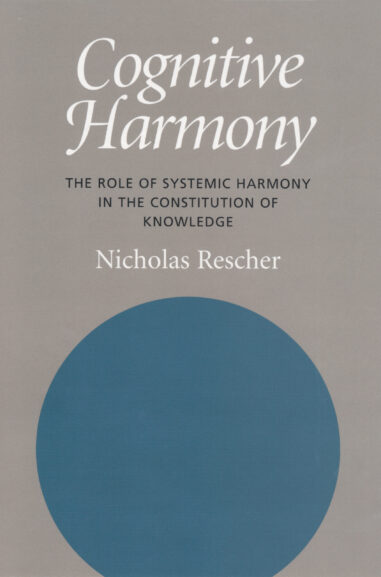This novel approach to epistemological discourse explains the complex but crucial role that systematization plays-not just for the organization of what we know, but also for its validation. Cognitive Harmony argues for a new conception of the process philosophers generally call induction. Relying on the root definition of harmony, a coherent unification of component parts (systemic integrity) in such a way that the final object can successfully accomplish what it was meant to do (evaluative positivity), Rescher discusses the role of harmony in cognitive contexts, the history of cognitive harmony, and the various features it has in producing human knowledge. The book ends on the issue of philosophy and the sort of harmony required of philosophical systems.



